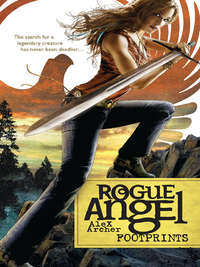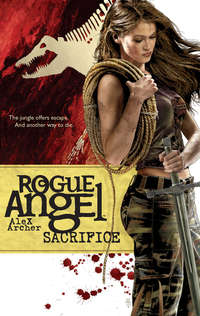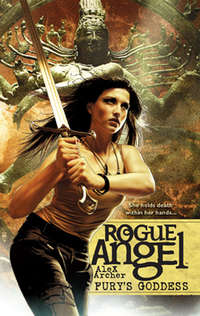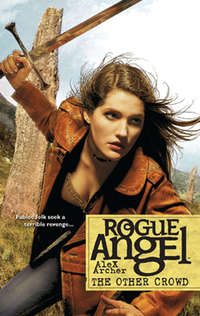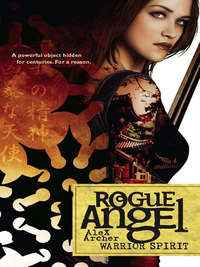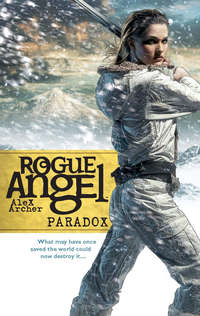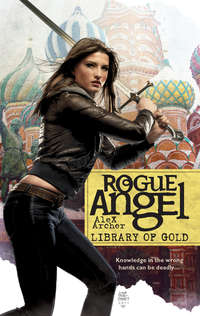
Полная версия
False Horizon

“Where are we?”
Tuk shook his head. “I have no idea. I only know that we are no longer where we were when we saw the yeti.”
Annja felt the pillows. The fabric they were covered in was smooth and silky to the touch. She looked around the room and saw that the same type of material covered the walls. Light came from somewhere, but it was subdued and reflected inward from an outside source. The room seemed designed to transition people from wherever they’d been into this place. Waking up to a harsh lightbulb probably wasn’t the best way to do that, so the lighting was dim, but Annja could still see everything.
“How long have you been awake?” she asked.
“A few minutes, no more,” Tuk said. “I’m afraid that when you told me to stop breathing, I did exactly the opposite and took a huge breath, which no doubt hastened my own demise as it were.”
Annja grinned. “You can’t be faulted for that.”
Tuk leaned closer. “You know, that is the second time I have seen that sword of yours. How is it possible for that to somehow conceal itself on your body and not be noticeable?”
Annja laughed. “If I tried to explain it to you, you’d only have more questions. And they’d probably be questions I couldn’t answer. Not because I don’t want to. But because I don’t know the answers myself.”
Tuk leaned back. “I see. But you have it here still?”
Annja closed her eyes and saw the sword hovering in the otherwhere. “It’s here,” she said.
False Horizon
Rogue Angel™
Alex Archer

www.mirabooks.co.uk
The Legend
…THE ENGLIH COMMANDER TOOK JOAN’S SWORD AND RAISED IT HIGH.
The broadsword, plain and unadorned, gleamed in the firelight. He put the tip against the ground and his foot at the center of the blade. The broadsword shattered, fragments falling into the mud. The crowd surged forward, peasant and soldier, and snatched the shards from the trampled mud. The commander tossed the hilt deep into the crowd.
Smoke almost obscured Joan, but she continued praying till the end, untill finally the flames climbed her body and she sagged against the restraints.
Joan of Arc died that fateful day in France, but her legend and sword are reborn….
Contents
Chapter 1
Chapter 2
Chapter 3
Chapter 4
Chapter 5
Chapter 6
Chapter 7
Chapter 8
Chapter 9
Chapter 10
Chapter 11
Chapter 12
Chapter 13
Chapter 14
Chapter 15
Chapter 16
Chapter 17
Chapter 18
Chapter 19
Chapter 20
Chapter 21
Chapter 22
Chapter 23
Chapter 24
Chapter 25
Chapter 26
Chapter 27
Chapter 28
Chapter 29
Chapter 30
Chapter 31
Chapter 32
Chapter 33
Chapter 34
Chapter 35
Chapter 36
Chapter 37
Chapter 38
Chapter 39
1
Nepal was one of the places in the world where Annja Creed felt that the line between fantasy and reality grew very thin. It’s relatively modern city, Katmandu, still nestled enclaves of the old world—when the lines between Buddhist, Taoist and Hindu religions intersected and the Mongols of the north fell down upon their southern neighbors. And the most imposing, the massive Himalayan mountain range shadowed the entire region with its sheer magnitude and incredible stillness and tranquility.
In Katmandu, motorbikes raced around while rickshaws still peppered the streets pulled by wiry little men intent on earning enough money to feed their families. Dust filled the air and gasoline fumes tainted every breath.
Masses of eyes watched every happening on the crowded streets. While Nepal was ostensibly a monarchy, it also shared a border with Tibet and China beyond that. As such, intelligence services from around the globe plied their cloak-and-dagger trade in the shadows and overhangs of the city. Paid informants kept track of their various targets and Annja knew it would be almost impossible to lose any surveillance she might pick up.
Not that she expected to be followed.
Her purpose for being in the capital city was one of pure adventure and not some underhanded government operation. And she felt excited about the prospect of finding the target of her quest.
She’d journeyed from her home in New York at the behest of Professor Mike Tingley, head of the Ancient Religions department at Charlesgate University. He’d emailed Annja and asked her if she might be interested in accompanying him on his trip. When Annja saw where he was headed, she immediately made plans for a personal leave from hosting her cable television show, Chasing History’s Monsters, and started planning in earnest.
The flight over from New York City to the first waypoint in Osaka, Japan, took twelve hours. Annja used the time to research as much about their quest as was possible. In the Osaka airport, she bought a bowl of soba noodle soup at one of the stands and watched as tourists buzzed past her. She never tired of visiting foreign countries and exploring their cultures.
The connecting flight put her in Katmandu the next day. As Annja deplaned, the sights and sounds of the region rushed back to greet her. With her visa properly stamped, she hailed a taxi.
“Thamel,” she requested.
The driver shook his head. “I can’t drive in Thamel. Streets too narrow. You need to take a rickshaw.”
Annja handed him a twenty-dollar bill. “Take me as far as you can and I’ll get along the rest of the way.”
The driver eyed the twenty and shook his head. “Dollar not good anymore. America economy bad.”
Annja frowned and pulled out another twenty. “How about this?”
The driver pocketed the money and nodded. “Now it’s good.” He shifted the taxi into Drive and bolted out of the parking space outside the airport terminal.
Annja opened her window and took in the smells of Katmandu. The combination of diesel fumes and sewage made her nose crinkle but only for a moment. She remembered the scent and knew it was only a matter of time before she grew used to it.
Nothing’s changed, she thought. The city still looks the same.
Twenty minutes after leaving the airport, the driver braked by a corner congested with people. “As far as I go. Thamel’s a few blocks farther down.”
Annja thanked him, then hopped out and dragged her bag with her. In all the years that she’d been traipsing across the globe, she’d mastered the science of packing light. She had a few key articles of clothing that could be combined into an endless array of outfits. That, plus her laptop computer and a credit card for quick purchases, helped her feel at ease with just a backpack.
She walked down the street as the sounds of the city bombarded her ears. Honking seemed to be its own form of communication. From the deep blasts of the truck horns trying to muscle their way through the city to the nasally beep-beeps of motorbikes threading through paths barely wide enough to accommodate them, the air felt thick with driver frustration.
Annja smiled as she reached the outskirts of Thamel and entered the quieter enclave. Traffic was significantly lighter. Rickshaws pulled past her and she waved two of them off. Small motorbikes zipped by, some of the drivers pausing to stare at her. Annja shook her head. She knew she was probably quite exotic-looking to the people of Nepal with her height, her long thick chestnut hair and amber-green eyes. She didn’t feel beautiful, especially not after the long flight, but people had commented on her looks enough that she accepted that many considered her to be very attractive, even if she wasn’t comfortable with it. She wanted a hot shower and a good night’s sleep. But first, she had to meet with Mike.
In his last email, he’d told Annja where to find him. He wanted to meet in the place they’d enjoyed so much the last time Annja had been here, a small American eatery called Blue Note.
It was the one place in Katmandu that Mike could find his favorite meal of all time—a cheeseburger and a cold beer.
Annja spotted the faded blue sign swinging back and forth in the dusty air and smiled. The owner refused to slap a fresh coat of paint on the building, preferring to keep an understated profile.
At the door Annja paused and then pushed her way inside. Instantly, she heard Ella Fitzgerald belting out an old song. She saw the gaggle of American faces turn toward her. She could pick out the mountaineers among them. They were eagerly poring over maps and studying the best routes that would take them in sight of Mount Everest.
But the Blue Note also attracted its fair share of surly characters, as well. She spotted two unshaven hulks of muscle eyeballing her from across the bar. Then she saw Mike’s hand waving her over and she grinned.
Mike Tingley looked more like a linebacker than a professor of obscure religions. He’d gone to college on a football scholarship and had refused to stop exercising as his years advanced. Almost forty-five, Mike could easily bench over three hundred pounds and his presence was more than enough to belay any hostility.
He rose as Annja came over to his table. “I see you made it safely.” He hugged her and then stepped back. “You look amazing.”
Annja grinned and punched him in the arm. “Cut it out. You know I just crawled off a plane after almost a full day in the air.”
Mike gestured for her to sit. “Grab a chair. I’m sure you’ve got questions.”
“Do you have the answers, though?” she asked.
He grinned. “First things first. You want a burger?”
Annja looked at Mike’s plate. Judging by the few remnants, he had already inhaled his favorite meal. “If I order one, do you promise to leave it alone?”
“I’ve already had my fill. You know I can’t resist this place.” He waved a waiter over and ordered for Annja. When the waiter returned a moment later with their beer, Mike raised his glass.
“Here’s to you, Annja. I appreciate you making the trip over. Really.”
Annja clinked glasses with him and then took a long sip. She put the glass down and smiled. “I’m happy to be here again. It’s been too long since we’ve worked together. Thanks for asking me to come along.”
Mike leaned forward. “So? What do you think of my plan?”
“At first I wasn’t sure what to think,” Annja said. “I mean what you’re proposing has been mulled over and even searched for for so long that most people consider it a pure fantasy. Or that it must have been destroyed many, many centuries ago.”
“And that’s what makes this so exciting,” Mike said. “Because I’m positive that everyone else has been searching in the entirely wrong part of this country for it. Everyone’s been wrong.”
“Except for you,” Annja said. “Imagine that.”
“Well,” Mike said. “I might be wrong, too. I guess we won’t know for sure until we actually get out there and find it.”
“What made you think you could even find the place, anyway?”
“It’s been a hobby of mine ever since I read the book that first described it in detail.”
“But Lost Horizon was a work of fiction. No one really believed that, did they?” Annja asked.
Mike nodded. “Plenty of people did. And plenty of them thought they were going to find it. As recently as a few years ago, there were still exploration teams making concerted efforts to locate it. But no one has ever succeeded.”
“Until now.”
Mike raised his glass. “You’re always the optimist, Annja. That’s what I love about you.”
“Plus, I’m the only friend of yours who’s crazy enough to actually fly across the globe to be a part of this.”
“There’s that, too,” Mike said with a laugh. “But if nothing else, at least we’ll have a fun time of it.”
Annja sighed and leaned back in her chair. “Shangri-La. It’s incredible to think that in this day and age a place supposedly so mystical and fantastic could even exist.”
“Well, what it is, is open to speculation. I never really bought in to the notion that it was some incredible utopia. It’s more the idea of the place that draws me in. That prospect of finding an untouched bit of geography that has been able to keep itself from becoming as molested as the rest of the planet—that’s a pretty potent lure for me.”
“And what happens if we do find it? What then?”
Mike shrugged. “I’m in academia. You know the golden rule.”
“Publish or die.”
“Exactly.”
“But won’t that mean exposing the place to the horrors of modern society?” Annja said.
Mike frowned. “I suppose it would. But I guess it depends on what we uncover when we find it.”
“If we find it,” Annja said.
“Hey, what happened to all that optimism?”
The waiter returned with Annja’s burger and she bit into the thick patty, finding it just as juicy as it looked. She chewed slowly, savoring the rush of saliva in her mouth.
Mike watched her intently. “Good, huh?”
Annja nodded and around mouthfuls asked, “How many did you eat?”
“Only two,” Mike said. “Doctor’s orders.”
Annja frowned and wiped her mouth. “What’s that mean?”
Mike shrugged. “Seems my diet is starting to catch up with me. My cholesterol is too high.”
“A lot of people suffer from high cholesterol. Can’t you go on statins or something? What are all those pharmaceutical ads I keep seeing during my dinnertime back in the States?”
Mike smiled. “I’m on the statins, yeah. But even with them, I’ve got to make some major changes to my diet or else I’m history.”
“Mike, you’re as strong as an ox,” Annja said.
“And nursing a cholesterol count of nearly three hundred,” Mike said. “Fitness isn’t all of the picture, apparently.”
Annja frowned. “Then I guess you’d better store up on the burgers while we’re here, huh?”
Mike took another sip of beer. “If you can help me find Shangri-La, then that will be better than any amount of these delicious, incredible burgers.”
Annja took another bite. “You’ve got all the help you need. You know that. Just let me enjoy my food and you can tell me all about what we’re going to be doing.”
Mike finished off his beer and leaned back. “My first order of business is ordering another burger.”
Annja stopped eating. “I thought you said you’d had your fill.”
“Well, yeah, but that was five minutes ago. I’m hungry again.”
Annja started to laugh, but then caught a flash of movement out of the corner of her eye. The surly twosome who had eyeballed her when she’d entered the bar were maneuvering closer to where she sat.
Annja allowed her eyes to pass over them as she casually scanned the bar. Nothing about them sparked any memories. Not that that meant anything. She had been around the world enough and on too many adventures to know everyone she might have angered. The list of people who wanted her dead was probably a long one.
But she hadn’t told anyone the details of her trip. And she thought the idea that someone would know she was coming was a bit far-fetched. So if the two guys eyeing her weren’t there for her, then were they there for Mike?
“Say, Mike…”
“Yeah?”
“You aren’t in any trouble, by any chance, are you?”
“Me? No. Why?” he asked.
Annja put down the rest of her burger and wiped her hands. The two men were headed straight for their table. “Because we’re about to have guests.”
2
From deep within the recesses of the crumbling brick facade across the street, a small Nepali man known as Tuk watched the restaurant with little more than a bored expression that echoed the blandness he felt inside. He was being well paid to watch the strange and beautiful woman he’d followed from the airport, but he knew nothing as to the reason. But Tuk had learned a few important things in his life as an orphan outcast, one of which was simple—when a foreigner offers you money to watch and do little else, it is smart to accept the generous offer.
Tuk scented the air and caught a whiff of cigarette smoke on the wind, hidden just a little by the pervasive gas fumes. His eyes moved in their sockets but did little else. As far as Tuk knew, no one could see him, ensconced as he was in the depth of shadows amid the twilight.
His stature made him perfectly suited for the role of surveillance. He was thin, almost wiry, yet possessed strength in his frame. He moved quickly and could easily pass through crowds like a soft breeze and no one would ever be the wiser.
Tuk had come to Katmandu as a child. He had little memory of his life before that. All he knew was that he had no one. He assumed his family had either abandoned him or they’d been killed in an avalanche, perhaps.
Tuk had wandered down the river valleys and shallow hills of the mountain ranges until his feet carried him to the outskirts of Katmandu. From there, he managed to scrape out an existence, although it was only such by the barest of measure.
As the desperate so often do, he developed a keen eye for opportunities. In his youth he worked to become an expert guide on the city streets for foreigners who came to this land seeking to ascend to the heavens. As he grew older, Tuk’s ability to navigate unseen led him to another class of foreigner with little interest in the mountains themselves, aside from what lay across their snowy peaks.
By the time Tuk finally understood that he held a certain amount of value to the various intelligence services that employed him, he was already deep within the community as a tracker. At first, representatives from several organizations had offered him full-time appointments, but Tuk had shrugged them off. He thought his best chance of prospering lay not in the fold of one nation’s spies, but in the community as a whole. He would hire himself out to whoever could afford his fee, which grew with each passing year.
As the years advanced, however, Tuk found himself being replaced with the advent of sophisticated electronic tracking systems. Gradually, his former clients opted for their tiny microchips and circuit boards over the wiry man they’d relied on for so long.
And Tuk found his fortunes fading away. But not entirely. Every now and again, someone would still seek him out. But his espionage days were over. His new clients were less patient people. Drug runners, arms dealers and other like folk used Tuk because it was cheaper than buying the technology to do the work.
And Tuk, ever the adaptable sort, was forced to lower his own personal standards and accept the work.
He hated it for the most part. Just being in contact with the clients made him feel dirty and his soul unclean. Tuk would only tolerate their presence for so long—enough time to get the details of the job and the payment for his services at the completion.
He’d had to give up the respect he’d once enjoyed from the spies. In him, they’d seen a fellow craftsman. Tuk had worked hard to nurture his talent and they understood that. Despite the fact that he worked for no country but himself, they’d all treated him like one of their own. And Tuk had enjoyed that feeling of belonging.
The men he worked for now cared little about his talent unless it produced results. More so, they treated Tuk like an insignificant mosquito that they barely found tolerable. They all had insulting nicknames for him and tossed his payment at him whenever they were finished.
Tuk was seriously considering leaving Katmandu and moving out into the countryside. He had a little money left, stashed away in a variety of hiding places in the city so utterly obscure that he was certain no one knew where they were. He could use that money to set himself up in a small house. Perhaps he would become a farmer.
He imagined life, looking out at the vastness of the enormous mountains each day, would be calm and enjoyable. Even as he had toiled in the narrow streets of Katmandu, Tuk had always felt drawn to the countryside. He’d come from somewhere out there. And he knew deep in his heart that someday he would return.
The previous day had started like any other. He left the tiny apartment he rented and made his way to find breakfast. He’d only traveled ten yards from his home when his instincts sparked up and he knew that someone was watching him.
At first, he was worried that one of the drug runners was going to kill him. But he disregarded that notion. Ever since he had started dealing with criminals, he’d taken extreme caution in how he worked his way back home each night. He used routes that doubled back on themselves. Tuk was sure that none of them would be able to track him.
But after another few blocks, he thought that maybe someone from his earlier life was stalking him. The prospect of that puzzled and thrilled him at the same time. He was puzzled because, in all his years, he’d never done anything to betray the confidences of whomever he worked for. He’d never done anything to warrant someone wanting to kill him.
And in that confidence, Tuk felt his heart soar. Perhaps, just perhaps, they were coming back to him for work. Maybe their fancy gadgets couldn’t do what Tuk could do. Sure, he was older now, but he still had vitality flowing in his veins. He could still complete their assignments with ease.
At the food cart, Tuk ordered his meal and then turned, casually gazing up the street. He saw nothing suspicious.
He frowned and cursed himself silently for being such a hopeful fool. He was getting old, he thought. And his desire for his former life had made him think that a return was possible when it was not.
Those spies, he told himself, are long gone. And they’re not coming back.
“Excuse me.”
Tuk nearly leaped out of his own skin at the sound of the low voice. He turned and was immediately struck by the size of the man standing next to him. He loomed large over the entire food cart and Tuk was completely in the man’s shadow.
But while there was no doubt that the man was both imposing and ominous, there seemed no threat directed at Tuk. If anything, Tuk felt that the man might even respect him a little. It was a theory quickly turned to fact when the man spoke again.
“Are you Tuk?”
The inflection of voice told Tuk all he needed to know. The man knew him not from his dealing with thugs, but from his intelligence work. Tuk smiled. “Yes. I am he.”
“I would like to ask for your assistance in a small matter I have to deal with,” the man said. “And I will pay you very well for your services, say twice the rate you used to obtain from the British?”
Tuk smiled. “That would make me very happy indeed.”
The man nodded. “I was certain it would.” He gestured to the street. “Walk with me and I shall tell you of the matter.”
Tuk fell into step beside the stranger and they moved off down the street. Tuk found himself marveling at the manner in which the giant man moved. Not so much like a steamroller or some other juggernaut, but with the practiced, careful step of a dancer. The man’s grace belied his immense size and Tuk knew this was no ordinary spy.
“She will come from America. A young woman in her twenties. Dark hair that flows down past her shoulders. She is lithe. Quick. And in battle, she is a most formidable opponent.” The man showed him a picture of a beautiful woman.
“I won’t fight her,” Tuk said.
“I should hope you won’t,” the man replied. “But have little doubt that if she spots you, then she will make every effort to find out why you are following her. And she can be most persuasive.”


